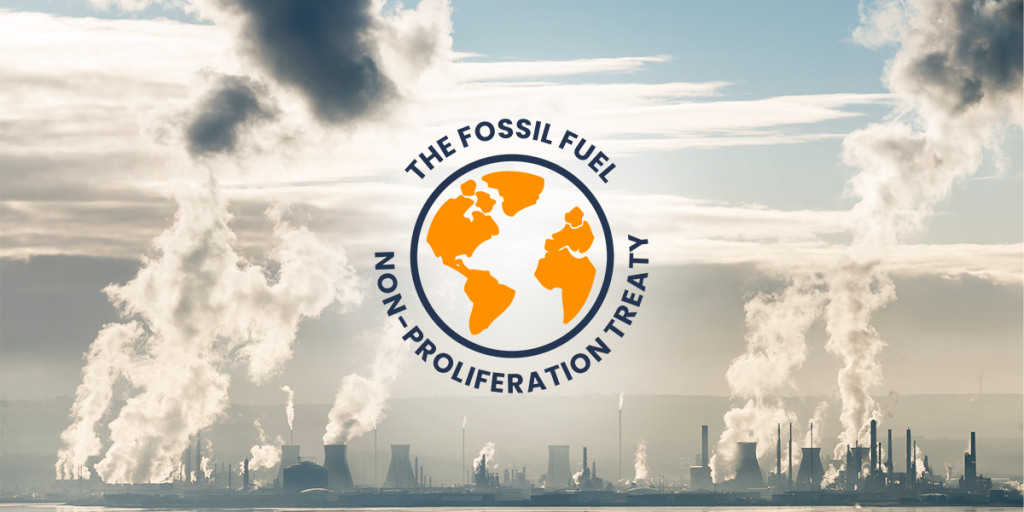
2022-11-13
This extra/ Sunday weblog post is an attempt to explain the basics of a fossil-fuel non-proliferation treaty, borrowing material from numerous places, without giving any appropriate credit. However, you might want to look at the documents here. This treaty doesn’t tell individuals what they have to do, but is focused on government action. Often, governments set emission limits, that affect consumers, at the same time that they subsidize oil producers.
This proposed treaty came to public attention during the 27th Conference of the Parties of the United Nations Framework Convention on Climate Change (COP27/ Cop27) = the 2022 United Nations Climate Change conference, held from 2022-11-06 to 2022-11-18 in Sharm El Sheikh, Egypt.
The proposed Fossil Fuel Non-Proliferation Treaty has three pillars: Non-proliferation, a fair phase-out and a just transition. Non-proliferation prevents the propagation of coal, oil and gas by ending all new exploration and production. A fair phase-out means that existing production of fossil fuels can continue, as long as they are in line with the 1.5C global climate goal. A just transition means that governments cannot promote the wants of the fossil-energy producers, but must attend to the real needs of everyone in the world.
In a resolution passed 2022-10-20, the European Parliament called on nation-states to work on developing a Fossil Fuel Non-Proliferation Treaty, a proposed international mechanism that would complement the Paris Agreement by enabling an equitable phase-out of oil, gas and coal production, responsible for more than 80% of global emissions in the last decade.
Earlier, on 2022-09-14, the World Health Organization urged governments to endorse a Fossil Fuel Non-Proliferation Treaty and Vanuatu became the first nation-state to call for Treaty at the UN General Assembly. This was followed by support from the Government of New Zealand and the President of Timor-Leste.
The proposed Fossil Fuel Non-Proliferation Treaty references the Framework Convention on Tobacco Control. It would be an evidence-based international agreement to control a category of substances well-known to be harmful to human health. The health risks associated with fossil fuels are numerous.
A realistic prognosis of world energy predicts that more than twice as much coal, oil and gas will be produced by 2030 than is consistent with limiting the rise in global temperature to below 1.5C, according to the United Nations and other organizations.
The world’s oil and gas fields and coal mines contain enough carbon to push the world beyond the Paris Agreement’s temperature limits (1.5C). There must be limits imposed on fossil fuel supply and extraction; subsidies must be removed for production, dismantling unnecessary infrastructure; the rights of indigenous peoples and impacted communities must be defended; wealthy countries must lead, support and pay for the managed phase-out of fossil fuels.
A peaceful and just transition requires a clear, proactive plan that enables economic diversification, the implementation of sufficient renewable energy and other reliable, cost-effective low-carbon solutions, and to support every worker, community and country.
Burning fossil fuels presents severe threats to human and planetary health. Air pollution, from burning fossil fuels causes more than seven million premature deaths each year. It contributes to cardiovascular disease, respiratory conditions, and cancers. Wildfires, made increasingly intense and common by climate change, add to this toll.
The climate crisis represents a critical health threat. A warmer climate creates ideal conditions for the transmission of food and water-borne diseases, undermining decades of progress in global public health. It increases the risk of heat related illness and death. Droughts, floods, extreme weather events and sea level rise caused by climate change disrupt livelihoods, pollute water, jeopardize food security, damage infrastructure and force migration.
Extreme weather events disrupt global medical supply chains, destroy healthcare facilities, and prevent health workers from providing health care.
Climate change affects mental health negatively, increasing rates of anxiety and depression, especially in young people.
Tzeporah Berman (1969-02-05 – ) has produced a TED-talk that addresses the fossil-fuel non-proliferation treaty issues. She is a Canadian environmental activist, campaigner and writer. She is known for her role as one of the organizers of the logging blockades in Clayoquot Sound, British Columbia in 1992–93. [Clayoquot Sound is on the west coast of Vancouver Island, while Denman island is off the east coast.] In 2009, Berman was appointed by Premier Gordon Campbell to serve on British Columbia’s Green Energy Task Force, charged with making recommendations on the development of renewable energy for the province. She is currently an adjunct professor at the Faculty of Environmental Studies, York University, Toronto, Ontario, Canada. In 2020 she launched the Fossil Fuel Non-Proliferation Treaty Initiative, of which she is the chairperson.
If individuals ask, I will suggest that they could develop a plan to abandon their own use of fossil fuels. Some elements of this plan could include something about eliminating internal combustion engines (ICE), for those who use them. Electrically powered lawnmowers, chain saws and other tools are available to replace highly polluting ICE equivalents. Electric vehicles (EV) have passed the early adapter phase, and in some places, such as Norway, are being purchased by the majority. A transition to an EV does not have to be done soon, but when people plan a transition to their next vehicle. Many sources claim that the most effective way to reduce green house emissions, is to add insulation to their housing. More advanced ways include adding solar energy (or even wind energy) and battery banks where this is feasible, and eliminating/ reducing gas for heating and cooking. The use of induction stove-tops is positive, in this respect. The use of heat pumps in space heating (and even for hot-water heaters) can be a cost-effective way of reducing emissions, depending on electricity costs in relation to other fuel costs. A personal plan, could also involve taking fewer leisure trips to exotic holiday locations.

